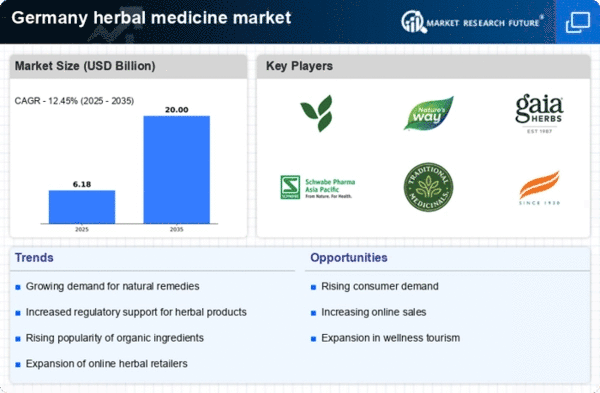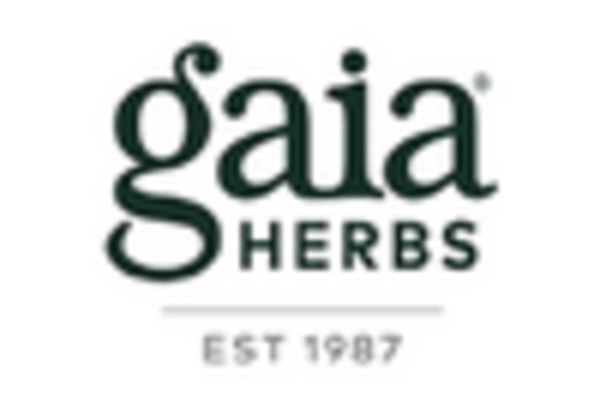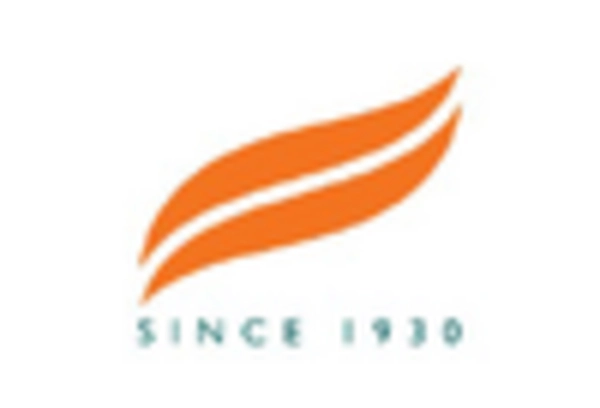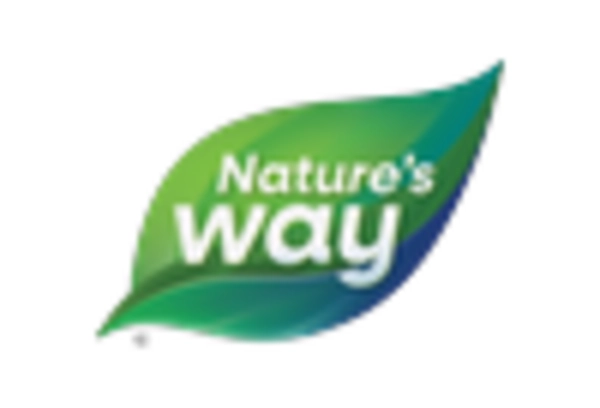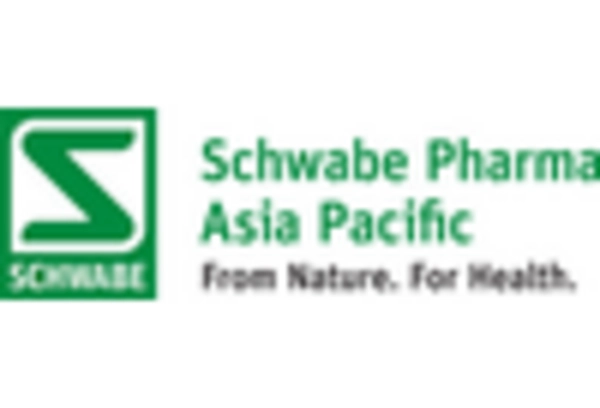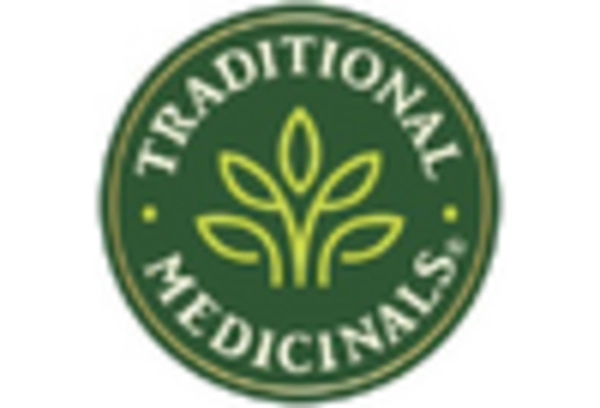Expansion of Retail Channels
The herbal medicine market in Germany is witnessing an expansion of retail channels, which is likely to enhance accessibility for consumers. Traditional pharmacies and health food stores are increasingly stocking a diverse range of herbal products, while online platforms are also gaining traction. This multi-channel approach allows consumers to explore various options and make informed choices. The convenience of e-commerce is particularly appealing, as it enables consumers to access herbal remedies from the comfort of their homes. As a result, the market is projected to grow by 9% over the next few years, driven by this increased availability. The expansion of retail channels not only facilitates consumer access but also fosters competition among suppliers, potentially leading to better quality and pricing in the herbal medicine market.
Increasing Consumer Awareness
The herbal medicine market in Germany is experiencing a significant shift due to increasing consumer awareness of the benefits associated with natural remedies. This heightened awareness is driven by a growing body of research highlighting the efficacy of herbal products in promoting health and wellness. As a result, more individuals are opting for herbal solutions over synthetic alternatives, leading to a projected growth rate of approximately 8% annually in this sector. The trend indicates that consumers are not only seeking effective treatments but are also prioritizing safety and sustainability, which herbal medicine often embodies. This shift in consumer behavior is likely to bolster the herbal medicine market, as individuals become more discerning about their health choices and seek out products that align with their values.
Rising Interest in Holistic Health
The herbal medicine market in Germany is benefiting from a rising interest in holistic health practices. Consumers are increasingly recognizing the interconnectedness of physical, mental, and emotional well-being, leading to a preference for treatments that address the whole person. Herbal medicine, with its emphasis on natural ingredients and traditional practices, aligns well with this holistic approach. This trend is reflected in the growing number of wellness centers and practitioners incorporating herbal remedies into their offerings. The market is expected to expand by approximately 7% annually as more individuals seek comprehensive health solutions. This shift towards holistic health not only enhances the appeal of herbal medicine but also encourages collaboration between conventional and alternative health practitioners.
Shift Towards Preventive Healthcare
In Germany, there is a discernible trend towards preventive healthcare, which significantly impacts the herbal medicine market. As healthcare costs continue to rise, consumers are increasingly seeking ways to maintain their health proactively. Herbal remedies are often perceived as a means to prevent illness rather than merely treat symptoms. This preventive approach is reflected in the market, where herbal supplements and teas are gaining popularity among health-conscious individuals. The herbal medicine market is projected to grow by 10% over the next five years, driven by this shift. Consumers are likely to invest in herbal products that support their immune systems and overall well-being, further solidifying the role of herbal medicine in the broader healthcare landscape.
Cultural Acceptance of Herbal Practices
Cultural acceptance of herbal practices in Germany plays a crucial role in shaping the herbal medicine market. With a long-standing tradition of using herbal remedies, many consumers view these products as integral to their health and wellness routines. This cultural inclination towards natural solutions is supported by a growing body of evidence that validates the effectiveness of various herbal treatments. As more individuals embrace these practices, the market is likely to see a steady increase in demand. Current estimates suggest that the herbal medicine market could grow by 6% annually, reflecting the deep-rooted cultural appreciation for herbal solutions. This acceptance not only drives sales but also encourages innovation within the market, as companies strive to meet the evolving preferences of consumers.


